Children on Vegetarian Diet Lower Iq
How a vegan diet could affect your intelligence
(Image credit:
Getty Images
)
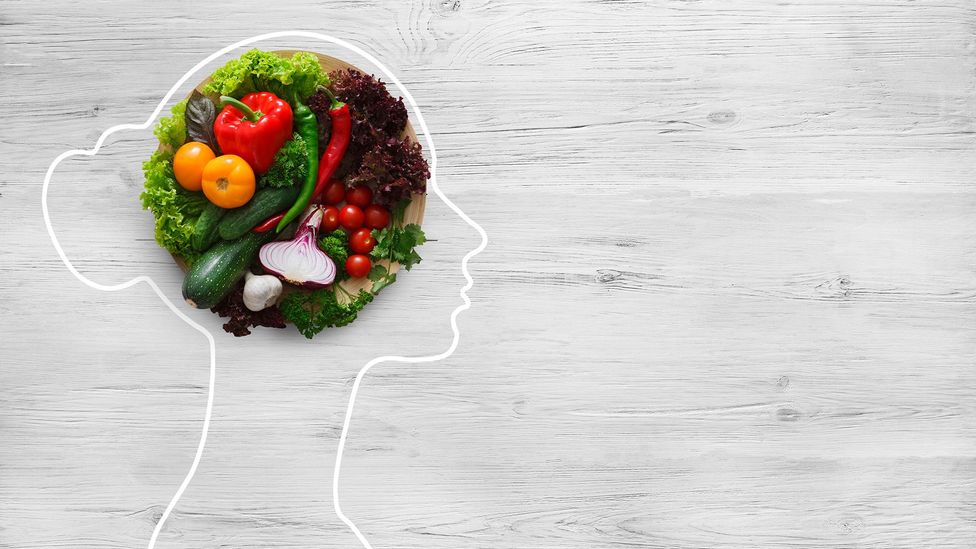
The vegan diet is low in – or, in some cases, entirely devoid of – several important brain nutrients. Could these shortcomings be affecting vegans' abilities to think?
It was the late 1880s in the city of Rajkot, India. The meeting was to take place on the banks of the local river – and discretion was essential. Mahatma Gandhi, who was just a teenager at the time, hadn't told his parents where he was going; if they had found out, they would have been shocked to death.
As it happens, Gandhi was having a picnic. And on this occasion, India's future national hero – and one of the most famous vegetarians in history – wasn't planning to dine on cucumber sandwiches. No, for the first time in his life, he was going to eat meat.
As he later wrote in his biography, Gandhi was raised as a strict Vaishnava Hindu, so he had never even seen meat before this fateful day. But his picnic companion was a shady character with an unusual obsession – the idea that meat held the key to being physically and mentally strong.
In the end, Gandhi braved the meat. It was as tough as leather.
More stories on The Vegan Factor from BBC Good Food
- Is going vegan better for the planet?
- Vegan takeaway recipes
The idea that avoiding meat is bad for our brains makes some intuitive sense; anthropologists have been arguing about what our ancestors ate for decades, but many scientists think that there was a lot of bone-crunching and brain-slurping on the road to evolving these remarkable 1.4kg (3lb) organs. Some have even gone so far as to say that meat made us human.
One reason is that intelligence is expensive – the brain devours about 20% of our daily calories, though it accounts for just 2% of our body weight – and what better way to find the enormous array of fats, amino acids, vitamins and minerals these fastidious organs require, than by feasting on animals which have already painstakingly collected or made them.

Mahatma Gandhi, India's pioneering independence leader, even toyed with eating meat despite his vegetarian beliefs (Credit: Getty Images)
But though it's hard to imagine our ancestors choosing turnips over tuna, today it's a different story. According to the latest statistics, there are around 375 million vegetarians on the planet. In the West, veganism has ditched the hippie stigma to become one of the fastest-growing millennial trends; in the United States, it grew by 600% between 2014 and 2017. Meanwhile in India, meat-free diets have been mainstream since the 6th Century BCE.
On the one hand, recent concern about the nutritional gaps in plant-based diets has led to a number of alarming headlines, including a warning that they can stunt brain development and cause irreversible damage to a person's nervous system. Back in 2016, the German Society for Nutrition went so far as to categorically state that – for children, pregnant or nursing women, and adolescents – vegan diets are not recommended, which has been backed up by a 2018 review of the research. After the Royal Academy of Medicine in Belgium decided a vegan diet was "unsuitable" for children, parents who force a vegan diet on their offspring in Belgium could even one day find themselves in prison.
But on the other, if abstaining from meat had any real impact on our brains, you would think that we would already have noticed. So is it really damaging our intellects, or is this all just fear of the unknown?
Ideally, to test the impact of the vegan diet on the brain, you would take a randomly selected group of people, ask half to stop eating animal products – then see what happens. But there isn't a single study like this.
Instead, the only research that comes close involved the reverse. It was conducted on 555 Kenyan schoolchildren, who were fed one of three different types of soup – one with meat, one with milk, and one with oil – or no soup at all, as a snack over seven school terms. They were tested before and after, to see how their intelligence compared. Because of their economic circumstances, the majority of the children were de facto vegetarians at the start of the study.
Surprisingly, the children who were given the soup containing meat each day seemed to have a significant edge. By the end of the study, they outperformed all the other children on a test for non-verbal reasoning. Along with the children who received soup with added oil, they also did the best on a test of arithmetic ability. Of course, more research is needed to verify if this effect is real, and if it would also apply to adults in developed countries, too. But it does raise intriguing questions about whether veganism could be holding some people back.
In fact, there are several important brain nutrients that simply do not exist in plants or fungi. Creatine, carnosine, taurine, EPA and DHA omega-3 (the third kind can be found in plants), haem iron and vitamins B12 and D3 generally only occur naturally in foods derived from animal products, though they can be synthesised in the lab or extracted from non-animal sources such as algae, bacteria or lichen, and added to supplements.
Others are found in vegan foods, but only in meagre amounts; to get the minimum amount of vitamin B6 required each day (1.3 mg) from one of the richest plant sources, potatoes, you'd have to eat about five cups' worth (equivalent to roughly 750g or 1.6lb). Delicious, but not particularly practical.
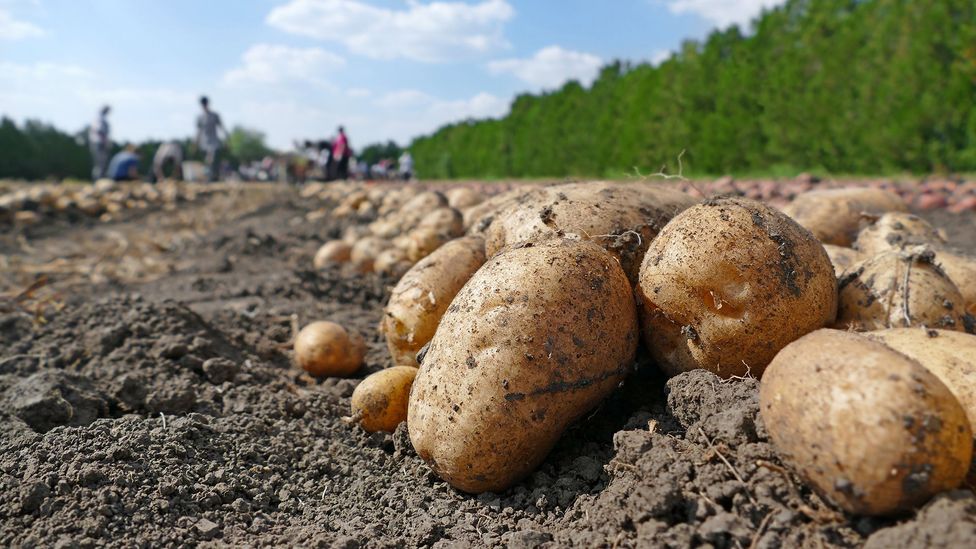
To get your daily requirement of vitamin b6, you would need to eat around 1.5lbs of potatoes (Credit: Getty Images)
And though the body can make some of these vital brain compounds from other ingredients in our diets, this ability isn't usually enough to make up for these dietary cracks. For all of the nutrients listed above, vegetarians and vegans have been shown to have lower quantities in their bodies. In some cases, deficiency isn't the exception – it's completely normal.
For now, the impact these shortcomings are having on the lives of vegans is largely a mystery. But a trickle of recent studies have provided some clues – and they make for unsettling reading.
"I think there are some real repercussions to the fact that plant-based diets are taking off," says Taylor Wallace, a food scientist and CEO of the nutrition consulting firm Think Healthy Group. "It's not that plant-based is inherently bad, but I don't think we're educating people enough on, you know, the nutrients that are mostly derived from animal products."
One of the most well-known challenges for vegans is getting enough vitamin B12, which is only found in animal products like eggs and meat. Other species acquire it from bacteria which live in their digestive tracts or faeces; they either absorb it directly or ingest it by snacking on their own poo, but unfortunately (or fortunately, depending on how you look at it) humans can't do either.
"There are some tragic cases of children whose brains failed to develop because of their parents being ill-informed vegans," says David Benton, who studies the link between our diets and brain chemistry at Swansea University. In one example, the child was unable to sit or smile. In another, they slipped into a coma.
Later in life, the amount of B12 in a person's blood has been directly correlated with their IQ. In the elderly, one study found that the brains of those with lower B12 were six times more likely to be shrinking.
Even so, low B12 is widespread in vegans. One British study found that half of the vegans in their sample were deficient. In some parts of India, the problem is endemic – possibly as a consequence of the popularity of meat-free diets.
Another nutrient that's scarce in the typical vegan diet is iron. Though we often associate it with blood, iron also plays prominent role in brain development, and is essential for keeping the organ healthy throughout our lives. For example, one 2007 study found that giving young women iron supplements led to significant intellectual gains. In those whose blood iron levels increased over the course of the study, their performance on a cognitive test improved between five- and seven-fold, while participants whose haemoglobin levels went up experienced gains in their processing speed.

It is important for vegans to take supplements to replace the essential elements found in animal products, experts say (Credit: Getty Images)
It's surprisingly easy to slip into iron deficiency, even though it makes up 80% of the inner mass of the planet we live on. Up to two billion people are thought to have a shortage of the element worldwide, making it the most common nutritional inadequacy. Vegans are particularly prone, because the form that's most readily absorbed by the body is "haem iron", which is only found in animal proteins. One German study found that 40% of the vegans they looked at were consuming less than the recommended daily amount.
Other common deficiencies among vegans include D3, omega-3, selenium, folate and iodine. Though the body can make D3 when the skin is exposed to sunshine, this doesn't make up for the extra that vegans are missing from their diets. In the winter months, when the sun is weaker, omnivores living in the UK have nearly 40% more vitamin D3 in their blood than vegans.
Of course, some of these things can easily be acquired from supplements. But others are so obscure, vegans are unlikely to have even heard of them – let alone realise they could be missing out.
One example is taurine. This enigmatic amino acid is one of the most plentiful in the human brain, where it's thought to underpin several important processes, such as regulating the number of neurons. It's often added to caffeinated energy drinks, because of the (possibly mistaken) belief that it can provide an immediate cognitive boost.
Though there are small amounts of taurine in some dairy products, the main dietary sources are meat and seafood. "Some species have the ability to make all the taurine they need," says Jang-Yen Wu, a biomedical scientist at Florida Atlantic University. "But humans have a very limited capacity to do this."
For this reason, vegans tend to have less taurine in their bodies. No one has looked into how this might be affecting their cognitive abilities yet, but based on what we know about its role in the brain, Wu says vegans should be taking taurine tablets. "People can become deficient when they restrict their diets, because vegetables have no taurine content," he says.
In fact, the holes in our current understanding of what the brain needs to be healthy could potentially be a major problem for vegans, since it's hard to artificially add a nutrient to your diet, if scientists haven't discovered its worth yet.
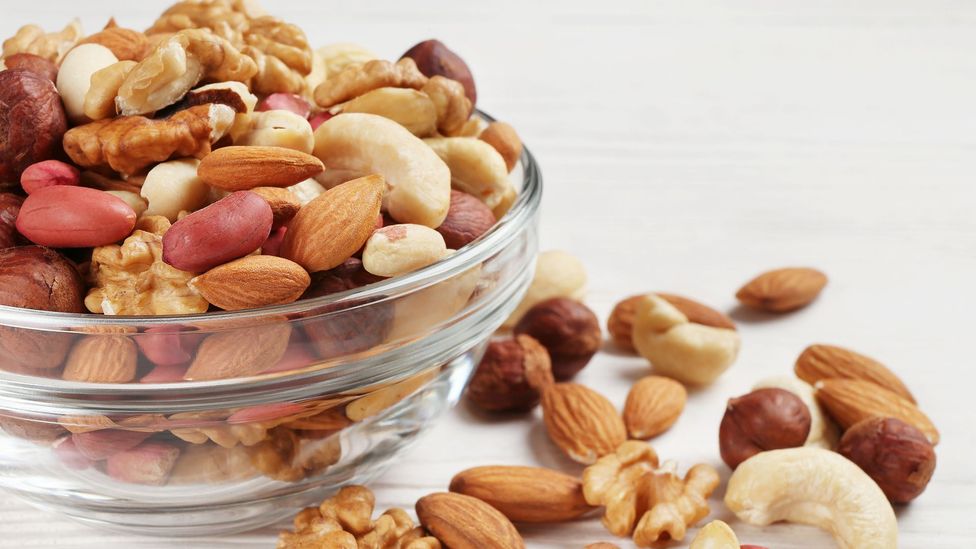
It's hard to artificially add a nutrient to your diet, if scientists haven't discovered its worth yet (Credit: Getty Images)
"There are so many unknowns," says Nathan Cofnas, who has authored a review on the subject. "And when you deviate from the typical diet for your species, to one which has not been tested and properly established to be healthy or good for the brain, you are conducting an experiment and you are taking a risk."
Take choline: in the brain, it's used to make acetylcholine, which is involved in a number of tasks, including relaying messages between nerve cells. It's fundamental to our ability to think – even insects have it in their tiny brains – and the body can't produce enough of it on its own.
And yet: "It's a very understudied nutrient," says Wallace. "I believe we've only considered it essential [something you have to get from your diet] since the late 1990s."
There are small amounts of choline in lots of vegan staples, but among the richest sources are eggs, beef and seafood. In fact, even with a normal diet, 90% of Americans don't consume enough. According to unpublished research by Wallace, vegetarians have the lowest intakes of any demographic. "They have extremely low levels of choline, to the point where it might be concerning," he says.
For vegans, the picture is likely to be bleaker still, since people who eat eggs tend to have almost double the choline levels of those who don't. And though the US authorities have set suggested intakes, they might be way off.
Wallace points to a 2018 study, which found that the babies of women who consumed twice the amount considered "adequate" – around 930mg each day – in the last third of pregnancy enjoyed a lasting cognitive edge. For comparison, the average vegetarian gets roughly a fifth of that amount.
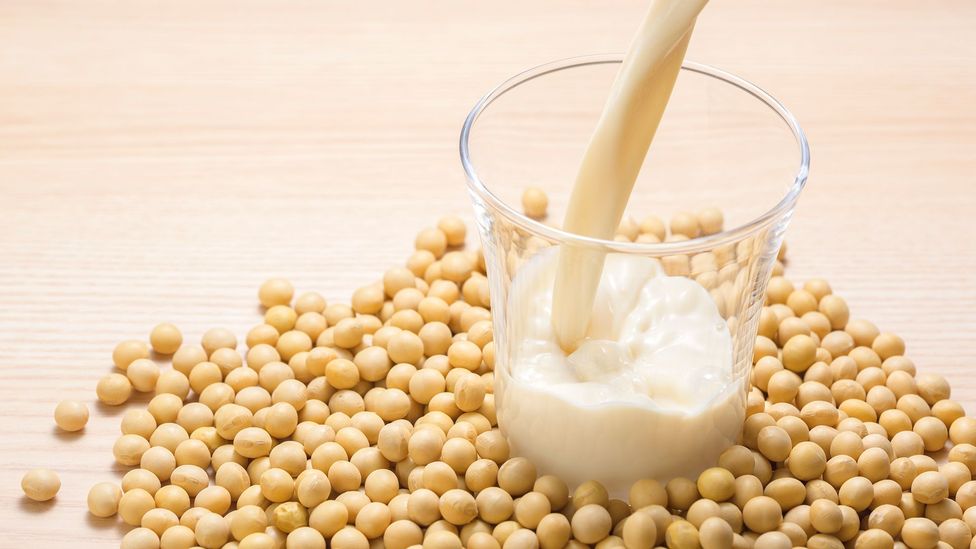
Vegans can get the protein they need from alternatives such as soya, but it won't give them essential elements such as choline and creatine (Credit: Getty Images)
In other cases, our understanding is even murkier.
The latest nutrient in question is creatine – a white, powdery substance often found in fitness shakes. Its natural function in the body is to supply our cells with energy, so it's revered by gym obsessives as a way to improve their endurance.
But it's also important to the brain – and studies have shown that increasing your intake can provide a range of benefits, such as a better recognition memory and reduced mental fatigue. Recently it's started to gain traction as a smart drug.
It's well-established that vegans and vegetarians have significantly lower levels in their bodies, because plants and fungi don't contain any.
This has led scientists to wonder whether a creatine deficit could be holding some people back. For one study, researchers tested how the intelligence of vegetarians and omnivores changed after five days on supplements. "We found that the vegetarians seemed to benefit particularly," says David Benton from Swansea University, who led the research.
In contrast, the omnivores were relatively unaffected. This hints that, unlike the vegetarians, they already had the appropriate amount of creatine in their brains.
However, Caroline Rae, who led another study, says there isn't enough evidence to back taking creatine yet. It may come with unintended consequences, such as reducing the brain's ability to make its own – leading to "creatine withdrawal". "I've always hypothesised that it could be useful if you wanted to cram for an exam, but it would be interesting to see if people then got slower after they stopped."
Finally, the brain largely makes its own supply, so it's not clear if vegans actually need any extra. Instead of being a major source, the creatine in our diets might only be used by the brain in "extreme" conditions, like when we're stressed.
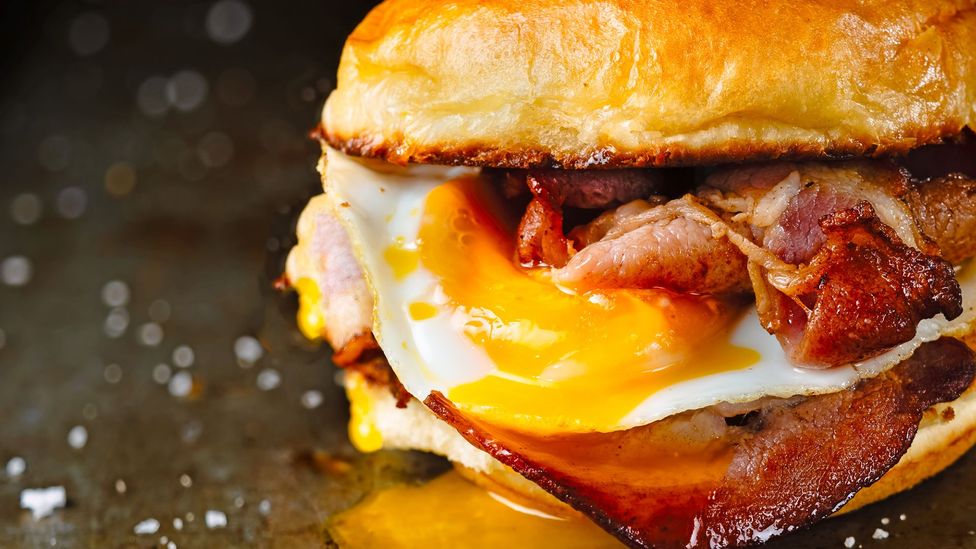
Creatine, carnosine, taurine, omega-3, heme iron and vitamins B12 and D3 only occur naturally in foods made from animal products (Credit: Getty Images)
Nevertheless, Cofnas finds the potential creatine deficits in vegans disturbing. "It can make quite a substantial difference in your life, whether your intelligence is one standard deviation above the mean or two," he says, referring to the small-yet-significant intellectual gains made by vegetarians on creatine supplements.
So what's the verdict?
"I think we need a lot more research into vegan nutrition and health," says Heather Russell, a dietitian from The Vegan Society. "As far as we can tell, it's possible to lead a healthy life as a vegan – certainly there are people who thrive on a vegan diet." Though it's important to take supplements, she explains that a person's cardiovascular and brain health are inextricably linked, and vegans tend to have healthier hearts.
"I tell people all the time, if you're going to be a vegan or vegetarian, that's fine," says Wallace. "I'm certainly not advocating against it. But there are 40 or something essential nutrients. So, I mean, it really would take a lot of research for vegans to get everything the brain needs," he says. Some nutrients that a typical vegan diet is low or lacking in, like choline, creatine, carnosine and taurine, are extremely bulky, so just taking a standard vitamin tablet won't be enough. Instead, they need to be taken individually.
Benton agrees. "I'm sure that if you are knowledgeable, careful, and obsessive about it – and you have all the right personality characteristics to be this way – then it is possible to have a healthy diet as a vegan," he says. "But it is distinctly possible that you could have deficiencies."
Cofnas takes a harsher view. Though vegans can take supplements, he thinks it's unrealistic to expect that they all will. Consequently, he finds the recent shift towards plant-based diets troubling, though he's sympathetic to the arguments for doing so. "Without question, veganism can cause B12 and iron deficiencies, and without question they affect your intelligence," he says.
As for Gandhi, he eventually abandoned his illicit relationship with meat, and went back to vegetarianism. But his experiments with nutrition didn't end there. He also ditched salt, then went back to it, and attempted veganism – though after a bout of dysentery practically reduced him to a living skeleton, he decided that milk products were necessary, in order for a person to be healthy.
Whatever the truth is, isn't it about time we found out?
An earlier version of this article stated omega-3 generally only occurs in animal products. The article has been corrected to make clear there are three types of omega-3 fatty acids and that one of these, ALA, is found mainly in plants.
The article also stated that Nathan Cofnas was a biologist at the University of Oxford. He is in fact studying philosophy of biology at the University of Oxford and has co-authored studies looking at the impact of the vegan diet on health and the brain. The article has been corrected to reflect that.
--
Join one million Future fans by liking us on Facebook , or follow us on Twitter or Instagram .
If you liked this story, sign up for the weekly bbc.com features newsletter , called "The Essential List". A handpicked selection of stories from BBC Future, Culture, Worklife, and Travel, delivered to your inbox every Friday.
Children on Vegetarian Diet Lower Iq
Source: https://www.bbc.com/future/article/20200127-how-a-vegan-diet-could-affect-your-intelligence